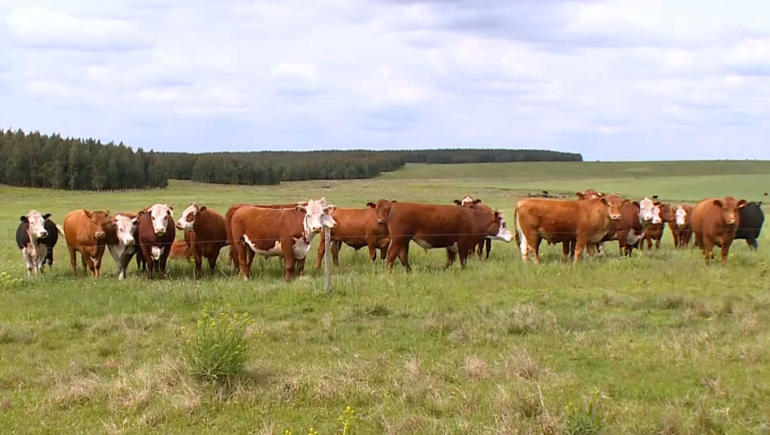Uruguay beef: Overseas demand eats into local consumption

Uruguay may be South America’s smallest country, but it’s the region’s largest consumer of beef per person.
However, for the first time ever, Uruguay is being forced to import beef.
The reason: China’s growing appetite for high-end gourmet meat.
CGTN’s Lucrecia Franco in Montevideo reports.
Uruguay, a country with 3.4 million people and 12 million head of cattle, is experiencing an unprecedented challenge to its beef economy. For the first time in its history, this small South American nation is importing beef from its neighbors, mainly from Argentina, Paraguay and Brazil, for its own consumption. The reason: China’s growing appetite for high-end gourmet meat.
The classic barbecue, “asado,” Uruguay’s most common meal. For some, it’s the best beef in the world, but the most popular cuts are suddenly harder to find here.
“That is because of the exports to China. When they ask for the meat, the best quality goes to them”, said Joaquin Gonzalez manager of “El Palenque”, a Montevideo barbecue restaurant, who is still selling homegrown beef.
Uruguayans are meat lovers, consuming more than 50 kilos of beef –that’s more than 110 pounds- per person, per year, the most in the world.
Healthy cows are what make Uruguayan beef so sought after. With huge expanses of natural pasture, cattle are 100% grass-fed and, by law, hormone and antibiotic-free. And every single cow in the country is monitored.
It is with tags with computer chips attached to their ears that Uruguayan cattle can be traced from birth to plate. The system is mandatory and assigns an identification code to each animal.
The country’s largest meat plant, Breeders & Packers of Uruguay, BPU, employs more than 700 workers who process about 800 cows per day. It is one of the principal businesses benefiting from the growing Chinese demand.
“We export a little bit above 40,000 metric tons each year, and it is approximately 200 million dollars with China being by far our most important market,” explained Camilo Giucci, BPU’s commercial manager.
Indeed, according to Uruguay’s National Beef Institute, in the past year, there’s been a 30% increase in the volume of beef exports to China. Beijing is willing to pay a lot more for Uruguayan meat.
The Beef Institute’s marketing director, Lautaro Perez, said this is mostly due to a scarcity of pork in China caused by an outbreak of African Swine fever and Uruguay is now having to buy from its neighbors.
“The result is that we have to increase imports of beef, almost fifteen and it is going up, up and probably 20% of our consumption will be imported beef,”
Conscious of their country’s high standards, Uruguayans bristle at the thought of eating imported “asado”. But economic reality is making their pride something they will have to swallow, at least for the time being.
